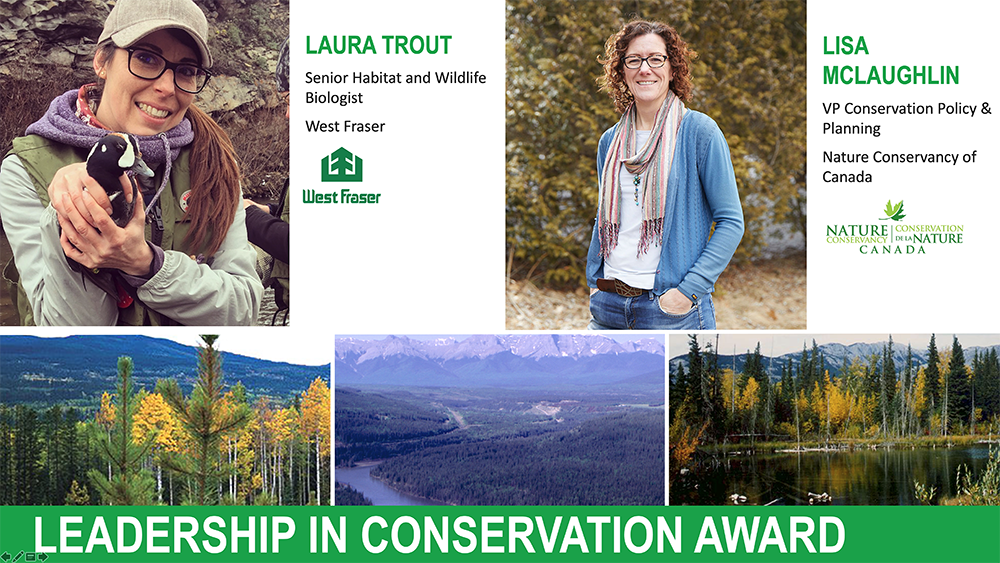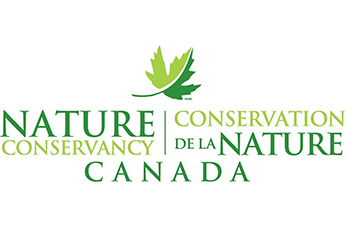
The Government of Canada is committed to conserving 25% of its land and 25% of its oceans by 2025 and is working toward 30% for each by 2030. SFI, the Nature Conservancy of Canada, and West Fraser are collaborating to ensure that conservation outcomes in Canada’s sustainably managed forests are fully recognized and contribute toward Canada’s Target 1 goals for conservation protection. The Target 1 Challenge is an investment by the federal government in projects that add to Canada’s protected and conserved areas across the country.
“The winners are taking an innovative approach to the pathway to Target 1, by facilitating an objective assessment of managed forestlands,” said Paul Trianosky, Chief Conservation Officer at SFI. “Validating and confirming the role of sustainable forest management, including those forests certified to the SFI Forest Management Standard, will help meet Canada’s conservation goals, and make clear the contributory value of managed forests at a large scale.”
Working on behalf of the Nature Conservancy of Canada, Lisa McLaughlin, VP Conservation Policy and Planning, helped to design an approach and tool to aid in identifying Other Effective Conservation Measures (OECMs) that can contribute to Canada’s ambitious conservation goals. By acknowledging effective conservation in sustainably managed forestlands, this tool breaks new ground through advancing understanding and recognition of effective measures beyond traditional protected areas like national parks. As a champion for applying OECM concepts on both government lands and private lands, McLaughlin’s influence is helping to galvanize partnerships, and clarify ways to achieve the ambitious 2025 Canadian conservation goals.
“Canada has set very ambitious area-based conservation goals and I’m so pleased to be able to help raise the profile and contributions of privately protected areas and OECMs in support of expanding our protected and conserved area network. Everyone – government, industry, private landowners – we all have a role to play in ensuring we’re protecting biodiversity in Canada – we all need to be working togegther in order to achieve the long term biodiveristy outcomes,” said McLaughlin.
Laura Trout, Senior Habitat and Wildlife Biologist, has led West Fraser’s involvement in the OECM work and has provided leadership to help broaden engagement within the forest sector. With the aid of NCC’s Decision Support Tool, Trout conducted a high-level evaluation of West Fraser’s operations and recommended four types of potential OECMs. She engaged partners and thought leaders from different sectors and evaluated long-term considerations and opportunities. Her practical approach, and West Fraser’s support for the analysis, will help others in the forest sector leverage project results. West Fraser is also a partner of the Minnesota SFI Implementation Committee, which was recognized this week as the winner of the SFI Implementation Committee Achievement Award.
“We were very pleased to provide some real-world case studies within our tenure areas that demonstrate how conservation values are fully consistent with sustainable forest management. We would like to thank SFI for the recognition of this work,” said Trout.
Leadership from the Nature Conservancy of Canada and West Fraser, and the work of McLaughlin and Trout, have resulted in the first steps toward acceptance and recognition of the conservation contributions from well-managed forestlands, and the value of forest management certification as a tool for validation. Members of the OECM coalition include SFI, the Nature Conservancy of Canada, Ducks Unlimited Canada, the Shad Foundation, and the Forest Products Association of Canada. McLaughlin and Trout have helped to navigate discussions among an array of stakeholders. So far, two of the seven OECM sites undergoing further assessment are managed by West Fraser and certified to the SFI Forest Management Standard.
Certifying to SFI ensures that those lands contribute effectively to conservation outcomes at both local and landscape scales. Other SFI-certified organizations are encouraged to join this important project to help leverage sustainable forest management to achieve Canada’s conservation goals.
ABOUT SFI
The Sustainable Forestry Initiative® (SFI) advances sustainability through forest-focused collaborations. We are an independent, nonprofit organization that leverages four interconnected pillars of work: standards, conservation, community, and education. SFI works with the forest sector, conservation groups, academics, researchers, brand owners, resource professionals, landowners, educators, local communities, Indigenous Peoples, and governments. Collaborating with our network, we leverage SFI-certified forests and products as powerful tools to help solve sustainability challenges such as climate action, conservation of biodiversity, education of future generations, and sustainable economic development.
MEDIA CONTACT
Christine Leduc
VP, Communications and Government Relations
Sustainable Forestry Initiative
613-706-1114
media@forests.org

About the Nature Conservancy of Canada
The Nature Conservancy of Canada (NCC) is the nation’s leading not-for-profit, private land conservation organization, working to protect our most important natural areas and the species they sustain. Since 1962, NCC and its partners have helped to protect 14 million hectares (35 million acres), coast to coast to coast. To learn more, visit: natureconservancy.ca.

About West Fraser
West Fraser is a diversified wood products company with more than 60 facilities in Canada, the United States, the United Kingdom, and Europe. From responsibly sourced and sustainably managed forest resources, the Company produces lumber, engineered wood, and other products including pulp, newsprint, wood chips, and renewable energy. West Fraser’s products are used in home construction, repair and remodeling, industrial applications, papers, tissue and box materials.
